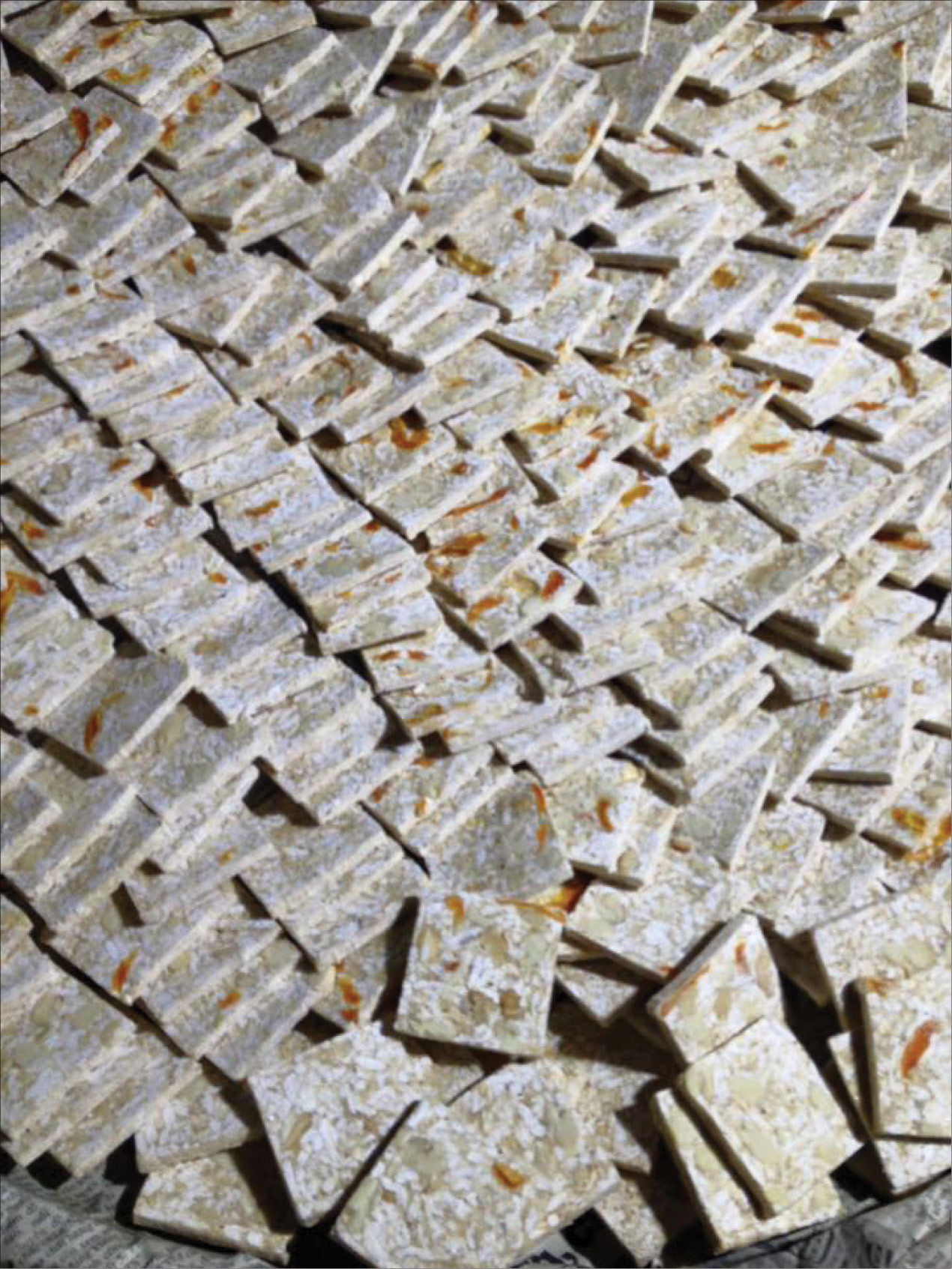
Dry cakes can last up to several months
Actually, dry cakes are not exclusive to Vinh An village, but in many neighboring villages such as Uu Diem, Pho Trach, Van Trinh or some villages across the Tam Giang lagoon such as Ke Mon, Dai Luoc or The Chi, the villagers make dry cakes to offer to their ancestors and to enjoy in the spring days.
Legend has it that, during the last days of a year, the village women would roast glutinous rice when they had to go to work in the fields as a way to keep warm and as snack to eat. This roasted glutinous rice dish developed gradually over the years, from which the dry cake was created for Tet (Lunar New Year).
Why is it called “dry cake”? Simply, the reason is that if all other types of Tet sweet treats like in (print) cakes, thuan cakes, or lan cakes require water in the recipe, dry cakes are made solely with dry ingredients.
Now, in the rural area of Phong Dien, only Vinh An village still maintains making dry cakes on Tet holiday. There are only a few households making this traditional cake in the village.
The rice is roasted until the kernels pop. Then, it is mixed with sugar, peanuts, ginger, and some other country spices. Next, the mixture is put inside a cylindrical wooden mold. People use a pestle to pack the cake. If the ingredients are prepared by the woman in the house, the packing stage must be done by a man with his strong hands in order to create firm and delicious cakes.
In cold weather at the end of the year, the scent of the roasted glutinous rice mixed with the scent of fresh ginger together with the sound of pestles hitting the wooden molds create a warm village atmosphere, announcing the coming of the new year.
Mrs. Tran Thi Hong's family is one of the three households producing dry cakes left in the village of Vinh An. According to Mrs. Hong, every year, her family uses about 400 to 500 kg of glutinous rice to make dry cakes. The demand is always higher than what her family is able to supply.

Mrs. Hong is preparing to dry the cakes
People in the village and surrounding areas buy dry cakes to worship their ancestors and to offer to guests on Tet holiday. Some people also buy dry cakes packaged as gifts for relatives living far from home who yearn for the dry cake flavor of their village.
The advantage of dry cakes is that they can last up to several months. But perhaps the reason why people enjoy the dry cakes is because of the taste of glutinous rice infused with ginger on the tip of the tongue, the taste which has been ingrained in the memory of every Phong Dien villager.
Due to the good consumption demand of Vinh An dry cakes in recent years, the authorities of Phong Binh commune have plans to encourage villagers in Vinh An village as well as purely agricultural villages such as Pho Trach, Van Trinh to produce dry cakes for sale on the occasion of Lunar New Year as well as all year round, bringing the flavor of dry cakes of the Phong Binh countryside to many regions in the country.
Story and photos: Phi Tan